- Home
- Paul Christopher
Templar Cross Page 16
Templar Cross Read online
Page 16
“You do that,” said Holliday.
Moustafa lived a few miles farther up the coast at a tiny beachfront community called Hammam Lekses. His ride turned out to be the marine version of the old Austin Champ they’d bargained for at the chicken farm. In this case it was a seventy-foot Motoscafo Armato Silurante, or MAS boat, the Italian version of the British torpedo boat and the German E-boat.
She sat at the stone pier on the waterfront of Hammam Lekses like a scruffy, battle-scarred old tomcat, her long deck cluttered with old fishnets and crates, her narrow afterdeck piled with roped and rusty fifty-gallon drums to give her range. Even now her hull was painted in old- fashioned Italian dazzle paint, faded with salt and the passage of time. An old tomcat perhaps, but a tomcat nevertheless, her long sleek lines still showing the hidden speed and deadly power lurking just beneath the surface.
The boat had been left behind in 1943 when the Germans and the Italians withdrew from Tunisia, and Moustafa’s father had managed to steal the craft from under the noses of the British and Americans, hiding her in a cave along the coast, using it to smuggle everything from olive oil to machine guns from Tunisia to Marseille after the war. Moustafa, it seemed, was following in his father’s footsteps.
Moustafa himself was the exact opposite of his cousin Moukaden: rail thin and totally bald. According to Moustafa the seventy-five-year-old boat was good as new and still capable of a tooth-rattling thirty-five knots. By Moustafa’s estimation the Khamsin would have made less than sixty miles headway by midafternoon, which meant that his boat, the Fantasma, the Ghost, would catch her in under two hours.
Even better, the Tunisian was also happy to throw in the use of a Russian RPG for an extra fee. As long as cousin Moukaden the harbor master authorized the high-seas boarding of the Khamsin, Moustafa had no compunction about getting them to their objective.
He did suggest that they wait for evening before setting out on their expedition. According to him, the Kirogi-class coastal patrols of the Tunisian navy, mostly based in Tunis, didn’t like operating in the dark and usually headed home at sunset. Even more important, in Moustafa’s experience the boarding of an enemy vessel was usually best accomplished at night. After some discussion and some urgent counterarguments by Rafi, they decided that it was best to follow Moustafa’s advice.
The sun was no more than a memory on the western horizon as Moustafa engaged the proud old Isotta Fraschini engines, lovingly maintained first by Moustafa’s father and now by Moustafa himself. The sea was utterly flat and the evening air was just beginning to cool as the lights of the houses and villas along the beach faded behind them. Tidyman stayed in the tiny deckhouse with Moustafa while Holliday and Rafi remained below in the big belowdecks wardroom.
Beneath their feet the engines roared loudly as Moustafa brought the boat up to speed, small waves rhythmically banging against the Fantasma’s flanks. The entire hull began to vibrate as they accelerated, the bows lifting as the boat began to plane. Within five minutes the Fantasma was cutting through the ocean at close to forty miles an hour.
“Are you sure we can trust him?” Rafi asked, seated at the wardroom table.
“Tidyman or Moustafa, or his cousin the harbor master?” Holliday asked with a shrug. “Who knows? Moukaden, the fat one, could be on the radio right now, talking to the Khamsin, warning them that we’re on the way. We don’t have much choice, do we? This is our only lead, our only path to Peggy.”
“Moustafa and his fat cousin are in it for the money—that’s easy enough to understand. It’s Tidyman I’m still not sure of.”
“Alhazred had his wife killed. That’s reason enough to trust him. Revenge is the best motive of all.”
“And if Peggy’s not on board the Khamsin?” Rafi asked. “What then?”
“We cross that bridge when we come to it,” answered Holliday.
They plowed on through the night, the ocean a desert of rolling water as barren as the desert of sand they’d crossed the night before. Holliday went up on deck once or twice to survey the sea and the star-lit sky, but mostly he dozed on one of the narrow V-bunks once used by the ten-man crew of the old Italian torpedo boat. It was well past two in the morning when Tidyman shook him awake.
“Something’s wrong,” the Egyptian said without preamble. “We think we have the Khamsin on the radar but she’s stationary, dead in the water.”
“Maybe the other engine broke down,” Holliday said, yawning as he stumbled after Tidyman. They reached the small forward wheelhouse. Moustafa stood at the wheel. Rafi was already there, staring at the sweep of the modern radar unit bolted onto the control panel. From the sound of the engines and the feel of the boat in the water Holliday could easily tell that the Fantasma had slowed considerably. He stared down at the radar screen. The sweep illuminated a small bright blip in the upper-right-hand corner of the screen, their own marker an even brighter mark that pulsed kitty-corner to the one in the upper right. The distance between the two markers steadily closed as Holliday watched, but the upper one was stationary.
“What’s the distance?” Holliday asked.
Moustafa leaned across the wheel and adjusted a knob on the radar set. The image jumped, then re-formed.
“One mile,” he said. “Less. A thousand meters.”
“Are we sure it’s the Khamsin?” Holliday asked. “Maybe it’s a rock or something.”
“No rock. Boat,” said Moustafa, staring out into the darkness, guiding the old gunboat through the smooth swells.
“It’s where the Khamsin should be,” said Tidyman.
“All right,” murmured Holliday, thinking hard as they moved slowly forward toward the bright blip on the screen. They had a few weapons, some handguns they’d brought with them from the camp in Germa and Moustafa’s RPG. Moustafa also had a World War II-vintage Breda bipodmounted light machine gun, but as Holliday recalled the weapon had been bad news during the war. He wasn’t about to trust it more than sixty years later. Not only was it out of date, but the wooden buttstock was cracked and pale with salt stains after years at sea, and the barrel was thick with grime and spotted with rust. It would almost certainly blow up in your face if you tried to fire it.
“You’re the soldier,” said Rafi to Holliday. “What do we do now?”
Holliday shrugged. “There’s two ways, fast and hard or slow and careful. Personally I favor slow and careful.” He grinned. “But I’m getting a little old for this kind of thing.”
“I am, too,” said Tidyman.
“Well, I’m not,” Rafi said with a scowl. “Peggy could be on that boat.”
“Which is why slow and careful might be the best option,” responded Tidyman. “We have no idea who is aboard the ship. We could easily be outnumbered. Your friend could well forfeit her life for a rash action.”
“The Khamsin is old, with a wooden hull,” said Holliday. “One shot from that RPG is easily capable of sinking her.”
“What are you suggesting?” Tidyman asked quietly. On the radar screen the two blips were getting closer and closer.
“Five hundred meters,” said Moustafa. “The moon is rising. You will see her at any moment now.”
“We have to make a decision. Now,” demanded Rafi.
“There’s a spotlight up in the bow. We come in fast with a lot of light, blind them,” said Holliday. “We hail them. Act like we’re official. Customs or coast guard or something. Mr. Tidyman is in the bow with the RPG. We threaten them. Hand over Peggy or we sink her.”
“Sounds good to me,” said Tidyman. He smiled. “But please, in the future you must call me Emil.”
“Let’s go,” said Rafi. “We’re running out of time.”
“Two hundred meters, dead ahead,” said Moustafa.
They came in at flank speed, engines thundering, bow wave foaming up almost to the gunwales. Tidyman was braced against the forward winch, the RPG balanced on his shoulder, the weapon loaded and primed, his finger curled around the forward trigger mechanism.
Holliday and Rafi crouched behind the Egyptian, half hidden by a stinking pile of fishnet, handguns drawn and ready. Standing in the wheelhouse Moustafa waited until the very last second, then snapped on the floodlight in the bow, wrenching the wheel around at the same time, then hauling back the throttle, throwing the old torpedo boat into a sliding turn that left the Fantasma broadside to its quarry as it came to a roaring stop in a crashing welter of spray.
“Dear God in heaven,” whispered Tidyman, staring at the terrible vision before him, the horror of it etched by the floodlight in bright and grotesque detail against the night sky. “What awful thing has happened here?”
20
The weary old tugboat Khamsin rolled on the dark sea, broken and adrift. Her entire superstructure, including the main deckhouse and the wheelhouse above, looked as though it had been swallowed up by some hellish piece of machinery that had flailed and chewed the vessel into small pieces. The smokestack had completely torn away from its supports and now sagged down on the starboard side, riddled with holes the size of softballs.
The wheelhouse had almost completely vanished, windows demolished, bulkheads destroyed, the companionway stairs nothing but twisted wreckage. It was clear that the boat was taking on water; the portside list was so severe that the deck was awash. The deck itself was a splintered ruin, stitched with dozens more of the fist-sized openings that had turned the wheelhouse into a sieve.
There were several bodies, or at least parts of them, on deck. None was recognizable. There were smears of blood everywhere, great sprays of it against the whitework and more running down in broad streams into the scuppers.
Bizarrely, in the bows, a hand clutched a machine gun, but beyond the shoulder there was no body. Next to the arm a headless corpse hung out of an open hatch, a long ugly tongue of bone scraps and blood and brains spattering back along the decking.
“Peggy!” Rafi moaned, climbing to his feet.
“Wait,” said Holliday, standing and putting a cautioning hand on his friend’s shoulder.
“What could have done this?” Tidyman asked, standing beside them and surveying the wreckage as they rocked gently on the night waves.
Holliday knew exactly what had done it. He’d first seen it used from a C-47 Spooky in Vietnam and then the Russian version in the early days back in the eighties as an advisor with the mujahideen in Afghanistan.
The Russians called it a Yak- B12, the U.S. Air Force called it a Minigun—a chain-drive, electrically powered modern-day version of a Gatling gun with a rate of fire somewhere around four thousand rounds a minute. Enough to grind a human body to bloody shreds in the blink of an eye.
“Helicopters,” said Holliday, staring at the nightmare scene. “Like the ones that attacked Alhazred’s camp last night. They hit the boat on the return flight.”
“But why?” Rafi said, stunned and horrified by the awful vision in front of them.
“Revenge?” Tidyman said.
“Or cleaning up after themselves,” said Holliday coldly. “Silencing their enemies. Maybe our man from the gift shop in Alexandria knew too much.”
“You think the Church did this?” Rafi said, staring.
“I think Sodalitium Pianum, the ones who call themselves La Sapinière, might have done it,” answered Holliday. “They’re cold-blooded enough; look what they did in the desert last night.”
“Terror in the name of God.” Tidyman shrugged. “Not so hard to believe these days.”
“We have to go aboard,” said Rafi, his voice dull. “I have to find out if Peggy . . .” He stopped, swallowing hard. “I have to find out if Peggy was on the boat.”
“Emil and I can go,” said Holliday softly. “You don’t have to come.”
“Better not to,” agreed Tidyman. He reached out tentatively and touched Rafi’s arm. “Some pain should not be endured, or should at least be borne by others, and not alone.”
“No,” said Rafi. “I have to see.”
A few minutes later Moustafa managed to maneuver the low-hulled torpedo boat close enough to the wreck of the Khamsin for the men to simply step off onto the awkwardly tilting deck. Both armed, Holliday and Rafi went below to check the hold while Tidyman made his way up to the ruins of the wheelhouse.
They bypassed the headless watchman in the hatchway and made their way down the steeply canted ladder into the main hold. The ship’s interior was silent except for the creaking of the dying hull and empty of life. A ghost ship.
Once upon a time the small area had probably been used to carry supplies or spare equipment, but now it had been subdivided into plywood-partitioned stalls, each one no bigger than a coffin and lined with straw. In each of the subdivided areas a woman was shackled to a large ringbolt welded to the hull. There were thirty stalls and thirty women, or at least what was left of them. Each of the prisoners was naked and filthy.
They were all dead, some torn to ribbons by the rounds from the helicopter chain guns, others flailed by flying shrapnel. Some of them were very young, no more than eleven or twelve. The majority of them appeared to be Berbers, some with traditional tattoos on their hands and faces. There seemed to be no fear in their faces, as though they’d died in their sleep. Holliday was reasonably sure they’d been drugged for their sea voyage to keep them quiet.
“Who are they?” Rafi asked. “How did they get here? Not by choice surely.”
“Probably from Mauritania,” said Holliday, looking down at the pitiful remains of the women. “Chattel slavery is big business there. The men work on farms or in the mines, the women and girl children are sold as sex slaves. Alhazred is just a middleman between the slave dealers in Mali and the Sudan and the end users from La Santa.”
“How could any normal human being be involved in something like this? This is madness.”
“No, just business,” said Holliday, his voice cold with barely contained fury. “It’s not much different from privately run prisons in the U.S. The inhumanity is irrelevant; in the end it’s only the bottom line that counts.” He shook his head. “There’s nothing we can do here,” he said at last. “At least Peggy wasn’t on board.”
“Thank God for that,” said Rafi.
“I don’t think God is part of the equation here,” muttered Holliday. “Come on.”
They made their way back up to the deck again. Tidyman was waiting for them.
“Did you find anything?” Holliday asked.
“The only chart still intact at all was for the Tyrrhenian Sea.”
“Naples?” Holliday said. “Not Corsica?”
“Maybe Naples, maybe somewhere else.” He held up a shattered piece of electronic gear. “What’s left of a Garmin deck unit. If we’re lucky I’ll be able to figure out what charts they had loaded into it.” He glanced quickly at Rafi and then back to Holliday. “Any luck?”
“Peggy wasn’t on board,” said Holliday. “At least there’s no sign of her. There was a cargo of women belowdecks. Sex slaves. They’re all dead. Some of them are just kids.”
“What shall we do?”
Holliday looked up and down the deck. The wreckage hadn’t sunk much lower in the water since they’d come aboard. The boat could easily stay afloat for days. He thought about the bodies down below.
“Those women deserve a little dignity,” he said. “Let’s give them a proper burial at sea.”
Ten minutes later Moustafa put off a dozen yards, well away from the remains of the foundering tugboat. This time it was Holliday who carried the familiar weight of the rocket-propelled grenade launcher on his shoulder. He aimed for the open forward hatch, sent up a brief, heartfelt prayer, then pulled the heavy trigger.
There was a sharp cracking sound as the round took off, the recoil throwing him back on his right leg. The high-explosive charge detonated deep in the hull of the old boat and there was a thunder-clap of sound as the fuel tank exploded.
A gout of flame tore up out of the hold and there was a ghastly wrenching sound as the ancient tug broke her back
, the massive oak keelson twisting, then finally splitting along its length. Almost immediately the Khamsin began to sink, rolling once before slipping under the dark swell of the sea, leaving nothing behind but a few flaming pieces of wreckage and a spreading slick of bunker oil. In a little while even that would be gone.
Holliday stood alone on the forward deck of the torpedo boat, staring at the spot where the tug had been only moments before. Briefly he had one of those moments when the past comes back so hard it leaves you breathless, remembering his own father’s funeral and seeing his cousin Peggy on the other side of the grave, crying, even though he could not.
Later that day his uncle Henry had taken Holliday aside and reminded him that when he was gone Peggy would be the only family left to him, and that above all else it was Holliday’s job to protect her from harm, to keep her safe and see her happy. He’d vowed to do all those things and now he’d failed her. She was somewhere out there, desperate and afraid. It was his job to find her and bring her home.
Rafi appeared beside him on the deck. He held his peace for a moment. Finally Holliday turned to him.
“What?”
“Emil figured out the GPS unit. The Khamsin was headed for the island of Ponza, on the Italian coast.”
“How far?”
“Moustafa says he can have us there by sunrise.”
21
The island of Ponza is a five-mile-long and one-mile-wide crescent-shaped spine of volcanic rock rising out of the ocean fifty miles or so southeast of Rome and an almost equal distance northwest of Naples. The closest port offering ferry service is the coastal town of Anzio. The island, named in honor of the infamous Pontius Pilate, was a favorite holiday haunt for Romans in ancient times, a onetime penal colony and a summer resort for the seventeenth-century Bourbon kings of Naples and Sicily. During World War II it was used as an internment camp for troublesome Royalist families and briefly as a place of exile for Mussolini himself. During the twenty-first century, it had reverted to the past and was a summer haven for city-weary Romans during the months of July and August.

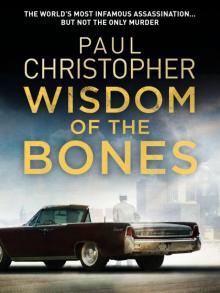 Wisdom of the Bones
Wisdom of the Bones The House of Special Purpose
The House of Special Purpose The Second Assassin
The Second Assassin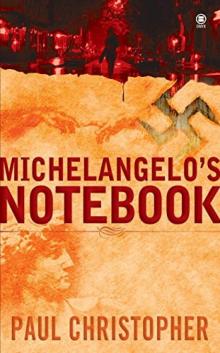 Michelangelo's Notebook
Michelangelo's Notebook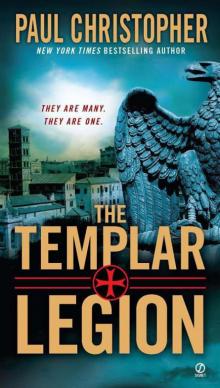 Templar Legion
Templar Legion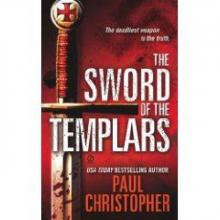 The Sword of the Templars t-1
The Sword of the Templars t-1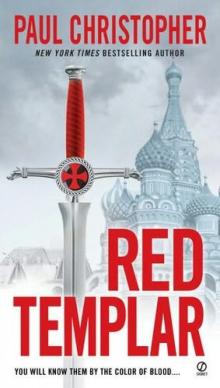 Red Templar
Red Templar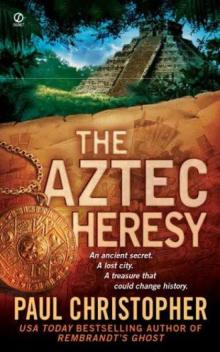 The Aztec Heresy
The Aztec Heresy The Templar Legion
The Templar Legion Rembrandt's Ghost
Rembrandt's Ghost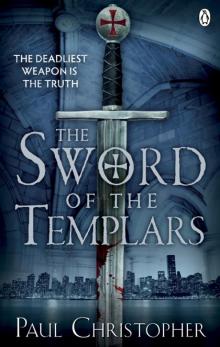 Sword of the Templars
Sword of the Templars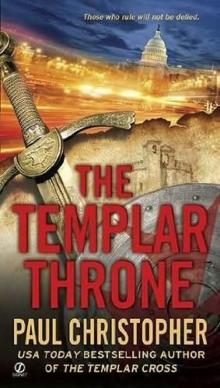 The Templar throne t-3
The Templar throne t-3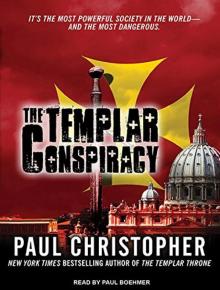 The Templar Conspiracy
The Templar Conspiracy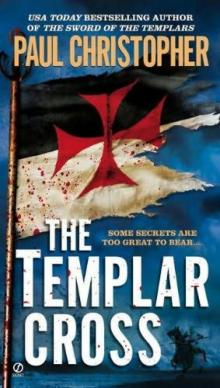 The Templar Cross t-2
The Templar Cross t-2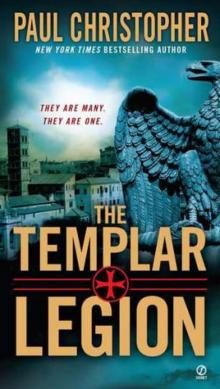 The Templar Legion t-5
The Templar Legion t-5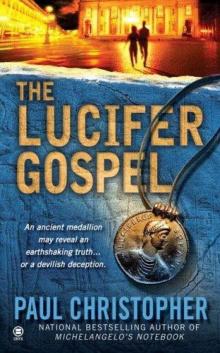 The Lucifer Gospel
The Lucifer Gospel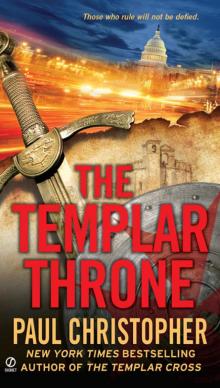 Templar Throne
Templar Throne Michelangelo_s Notebook fr-1
Michelangelo_s Notebook fr-1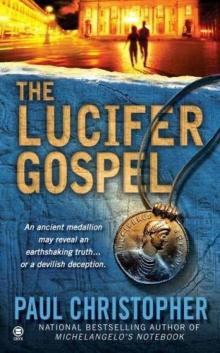 The Lucifer Gospel fr-2
The Lucifer Gospel fr-2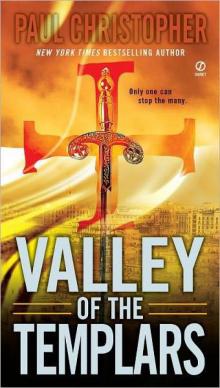 Valley of the Templars ts-7
Valley of the Templars ts-7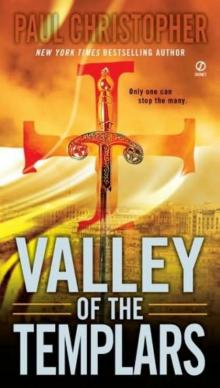 Valley of the Templars
Valley of the Templars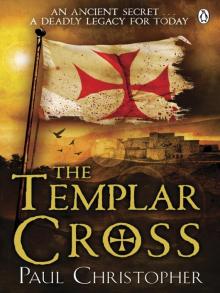 Templar Cross
Templar Cross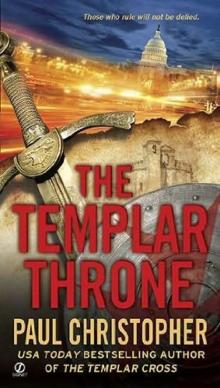 The Templar Throne
The Templar Throne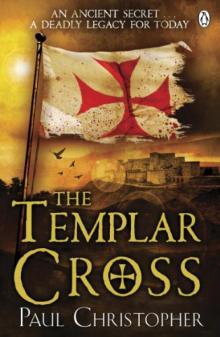 The Templar Cross
The Templar Cross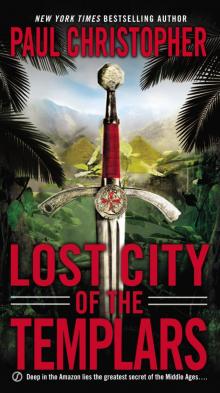 Lost City of the Templars
Lost City of the Templars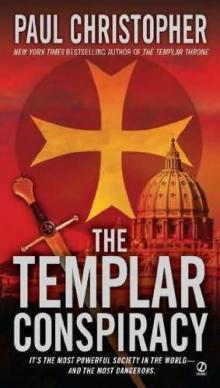 The Templar conspiracy t-4
The Templar conspiracy t-4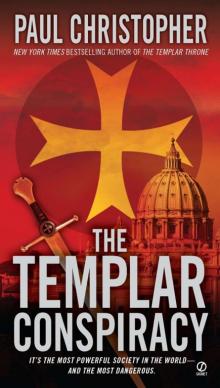 Templar Conspiracy
Templar Conspiracy